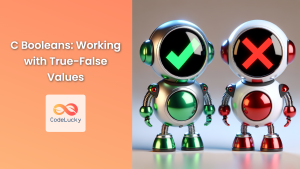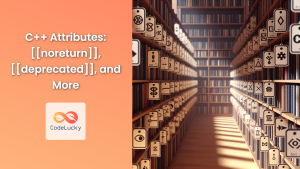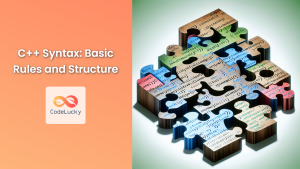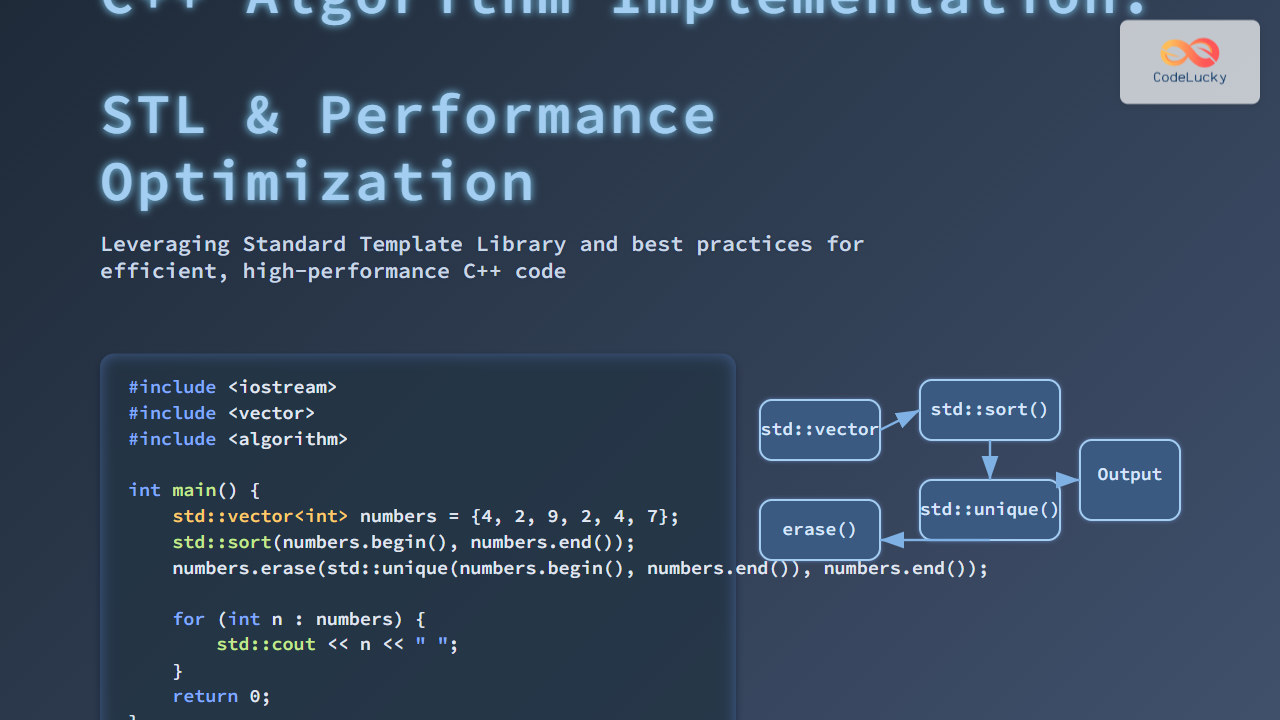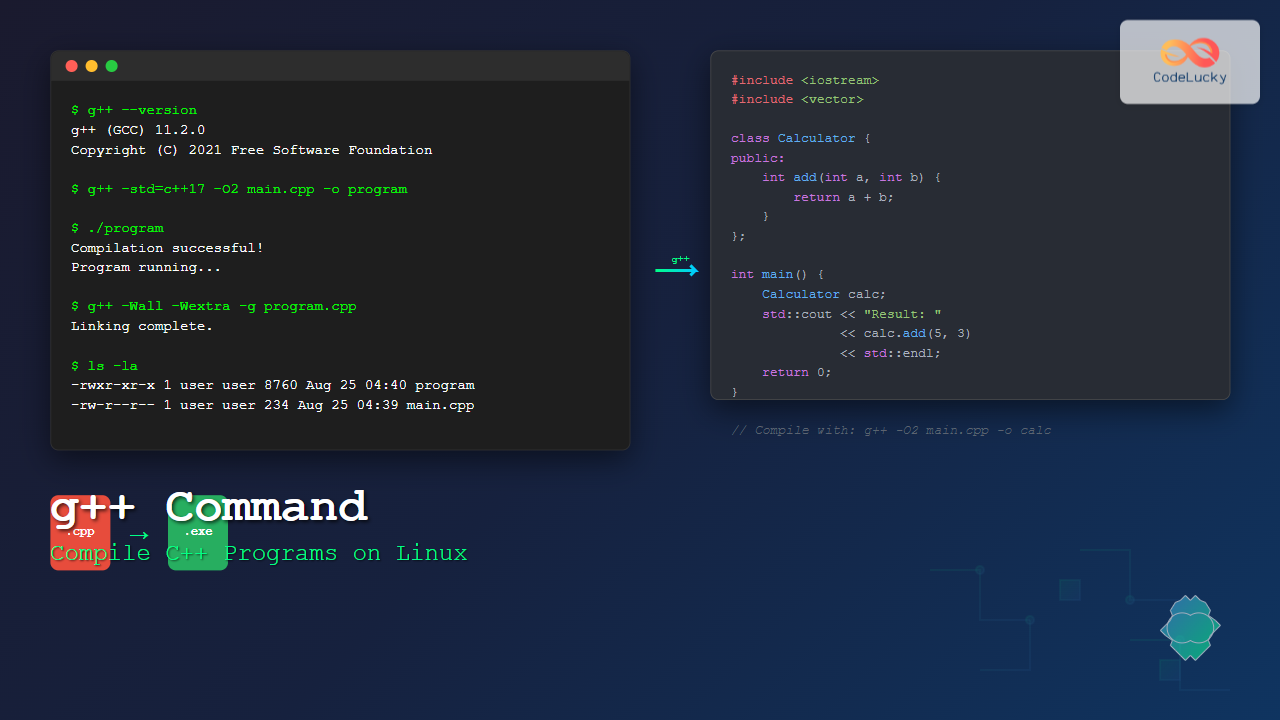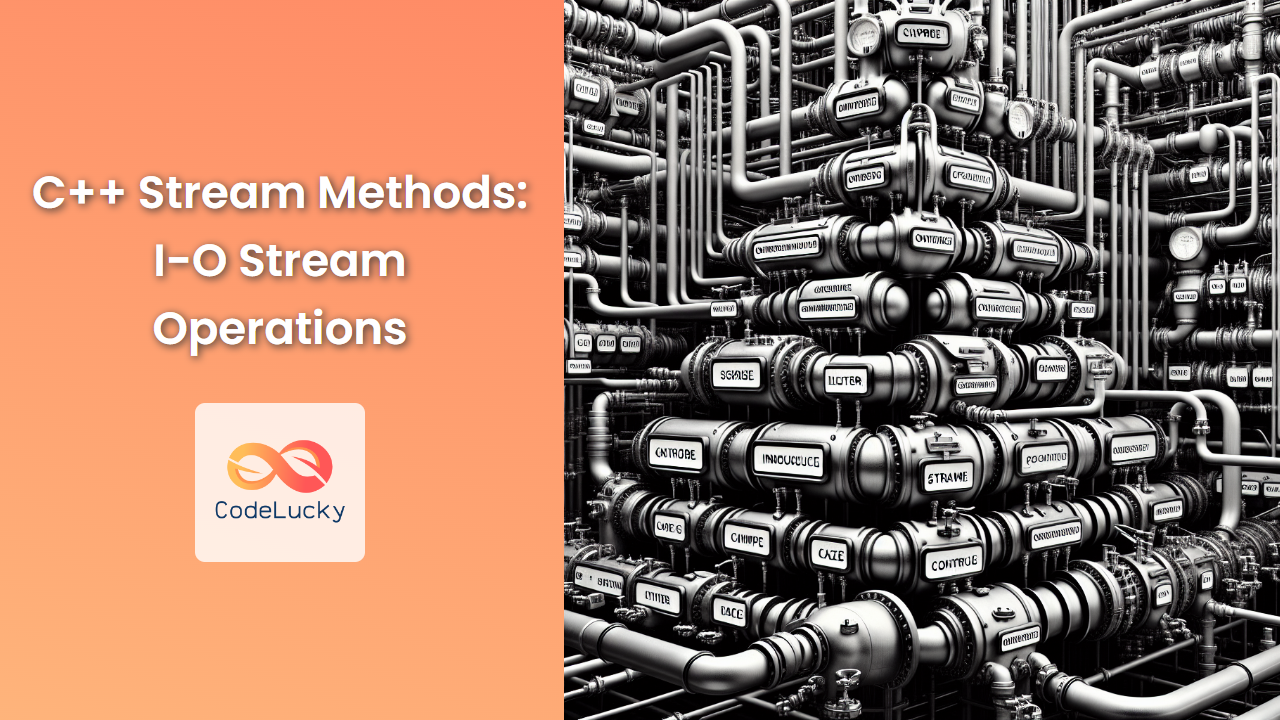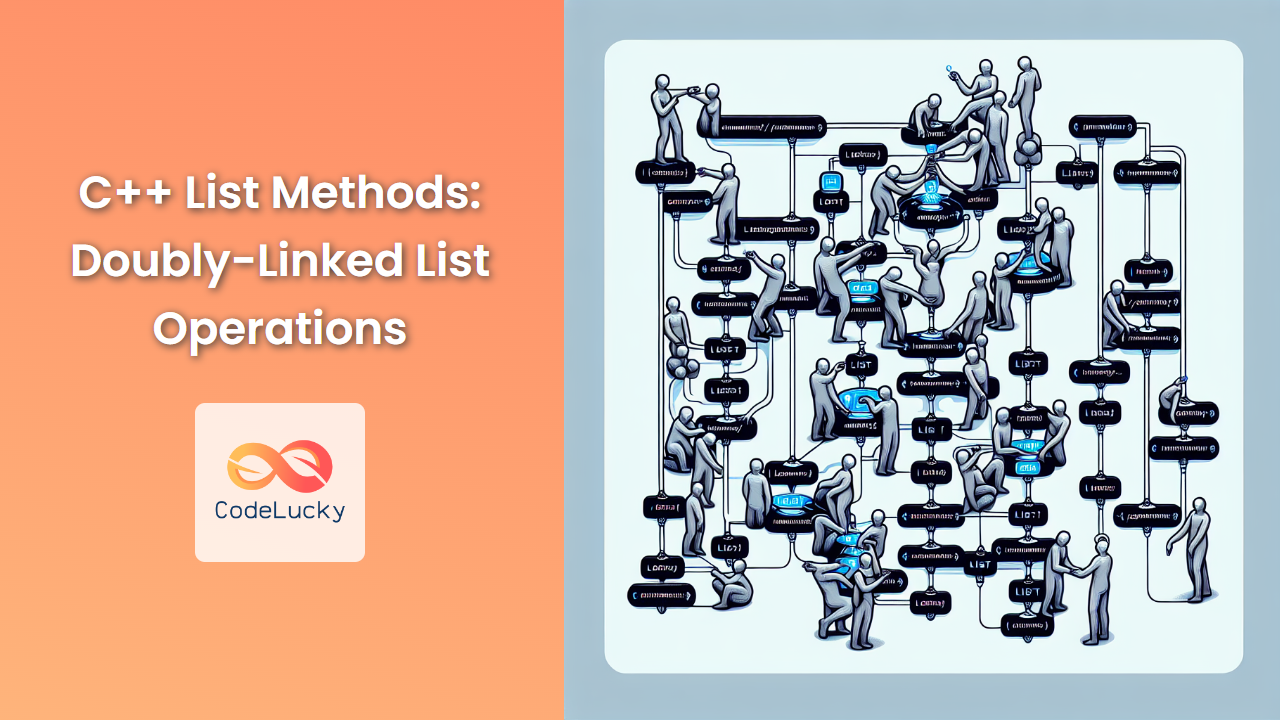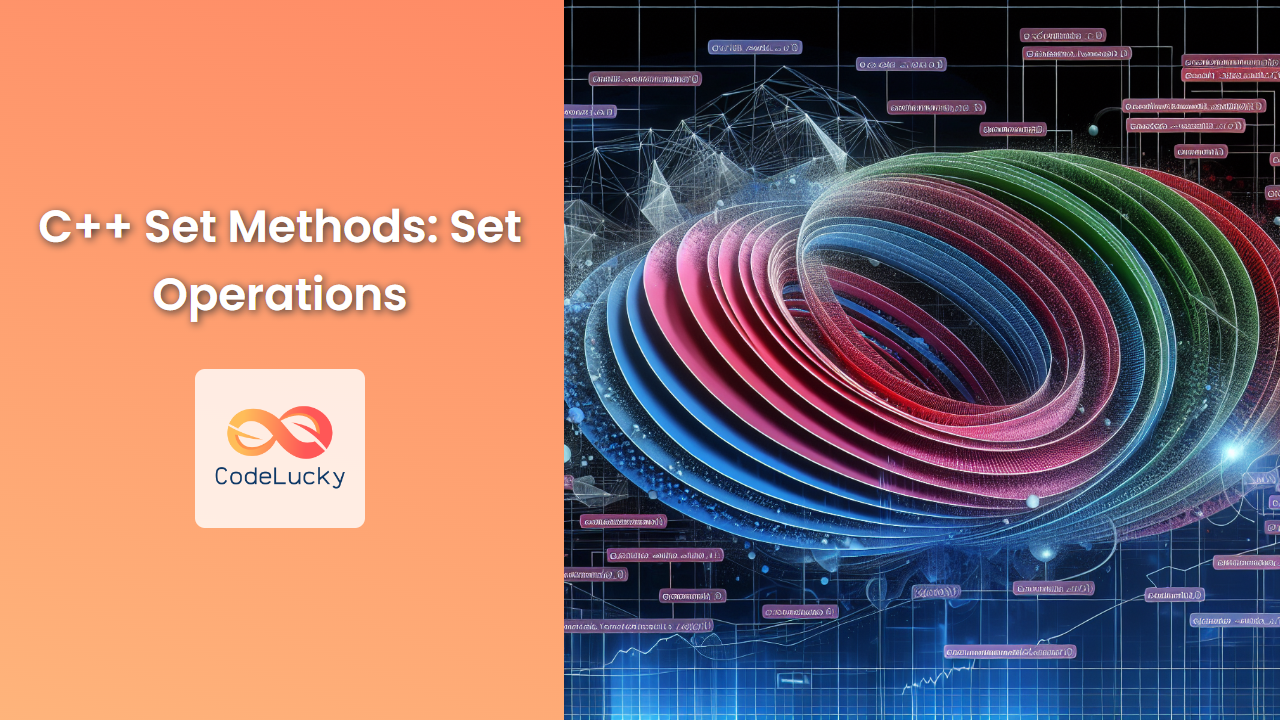In the world of programming, decision-making is a crucial aspect, and at the heart of these decisions lie boolean values. C++, being a powerful and versatile language, provides robust support for working with these true/false values. In this comprehensive guide, we'll dive deep into C++ booleans, exploring their intricacies, use cases, and best practices.
Understanding C++ Booleans
Booleans in C++ are fundamental data types that represent two states: true or false. Named after the mathematician George Boole, these values form the basis of logical operations and conditional statements in programming.
🔍 Fun Fact: The bool keyword was not part of the original C++ language. It was introduced in the C++98 standard, prior to which programmers often used integers to represent boolean values.
Let's start with a simple example:
#include <iostream>
int main() {
bool isRaining = true;
bool isSunny = false;
std::cout << "Is it raining? " << std::boolalpha << isRaining << std::endl;
std::cout << "Is it sunny? " << std::boolalpha << isSunny << std::endl;
return 0;
}
Output:
Is it raining? true
Is it sunny? false
In this example, we've declared two boolean variables: isRaining and isSunny. The std::boolalpha manipulator is used to display the boolean values as "true" or "false" instead of 1 or 0.
Boolean Operators
C++ provides several operators to work with boolean values. Let's explore them:
Logical AND (&&)
The AND operator returns true only if both operands are true.
bool isSunny = true;
bool isWarm = true;
bool isPerfectDay = isSunny && isWarm;
std::cout << "Is it a perfect day? " << std::boolalpha << isPerfectDay << std::endl;
Output:
Is it a perfect day? true
Logical OR (||)
The OR operator returns true if at least one of the operands is true.
bool hasUmbrella = false;
bool hasRaincoat = true;
bool isPreparedForRain = hasUmbrella || hasRaincoat;
std::cout << "Prepared for rain? " << std::boolalpha << isPreparedForRain << std::endl;
Output:
Prepared for rain? true
Logical NOT (!)
The NOT operator inverts the boolean value.
bool isHappy = true;
bool isSad = !isHappy;
std::cout << "Is sad? " << std::boolalpha << isSad << std::endl;
Output:
Is sad? false
Boolean in Conditional Statements
Booleans are extensively used in conditional statements to control the flow of a program.
#include <iostream>
int main() {
int age = 20;
bool isAdult = age >= 18;
if (isAdult) {
std::cout << "You can vote!" << std::endl;
} else {
std::cout << "You're too young to vote." << std::endl;
}
return 0;
}
Output:
You can vote!
In this example, we use a boolean variable isAdult to determine whether the person can vote or not.
Implicit Type Conversion
C++ allows implicit conversion between booleans and other types. This can be both powerful and dangerous if not used carefully.
#include <iostream>
int main() {
bool b1 = 42; // Any non-zero value is true
bool b2 = 0; // Zero is false
bool b3 = -3.14; // Any non-zero value is true
std::cout << std::boolalpha;
std::cout << "b1: " << b1 << std::endl;
std::cout << "b2: " << b2 << std::endl;
std::cout << "b3: " << b3 << std::endl;
return 0;
}
Output:
b1: true
b2: false
b3: true
⚠️ Warning: While implicit conversions can be convenient, they can also lead to subtle bugs. It's often better to be explicit about your intentions.
Boolean Functions
Functions that return boolean values are incredibly useful for encapsulating complex conditions.
#include <iostream>
#include <string>
bool isPalindrome(const std::string& str) {
int left = 0;
int right = str.length() - 1;
while (left < right) {
if (str[left] != str[right]) {
return false;
}
left++;
right--;
}
return true;
}
int main() {
std::string word1 = "racecar";
std::string word2 = "hello";
std::cout << std::boolalpha;
std::cout << word1 << " is a palindrome: " << isPalindrome(word1) << std::endl;
std::cout << word2 << " is a palindrome: " << isPalindrome(word2) << std::endl;
return 0;
}
Output:
racecar is a palindrome: true
hello is a palindrome: false
This example demonstrates a function isPalindrome that returns a boolean value indicating whether a given string is a palindrome or not.
Bitwise Operations on Booleans
While not commonly used, C++ allows bitwise operations on boolean values. These operations treat true as 1 and false as 0.
#include <iostream>
int main() {
bool a = true;
bool b = false;
std::cout << std::boolalpha;
std::cout << "a & b: " << (a & b) << std::endl; // Bitwise AND
std::cout << "a | b: " << (a | b) << std::endl; // Bitwise OR
std::cout << "a ^ b: " << (a ^ b) << std::endl; // Bitwise XOR
return 0;
}
Output:
a & b: false
a | b: true
a ^ b: true
🔍 Fun Fact: The bitwise XOR operation (^) on booleans is equivalent to the "not equal" comparison.
Boolean Arrays and Vectors
Booleans can be used in arrays and vectors, which can be particularly useful for representing sets of flags or states.
#include <iostream>
#include <vector>
int main() {
bool weekdays[7] = {true, true, true, true, true, false, false};
std::vector<bool> taskCompleted = {true, false, true, true, false};
std::cout << "Is Wednesday a weekday? " << std::boolalpha << weekdays[2] << std::endl;
std::cout << "Is task 3 completed? " << taskCompleted[2] << std::endl;
return 0;
}
Output:
Is Wednesday a weekday? true
Is task 3 completed? true
Boolean Algebra in C++
Boolean algebra forms the foundation of digital logic and computer science. C++ boolean operations directly correspond to boolean algebra operations.
Let's implement a simple boolean algebra calculator:
#include <iostream>
bool AND(bool a, bool b) { return a && b; }
bool OR(bool a, bool b) { return a || b; }
bool NOT(bool a) { return !a; }
bool XOR(bool a, bool b) { return a ^ b; }
void printTruthTable(const std::string& op, bool (*func)(bool, bool)) {
std::cout << "Truth table for " << op << ":\n";
std::cout << "A\tB\tResult\n";
for (int i = 0; i < 2; ++i) {
for (int j = 0; j < 2; ++j) {
bool a = static_cast<bool>(i);
bool b = static_cast<bool>(j);
std::cout << std::boolalpha << a << "\t" << b << "\t" << func(a, b) << "\n";
}
}
std::cout << std::endl;
}
int main() {
printTruthTable("AND", AND);
printTruthTable("OR", OR);
printTruthTable("XOR", XOR);
std::cout << "Truth table for NOT:\n";
std::cout << "A\tResult\n";
for (int i = 0; i < 2; ++i) {
bool a = static_cast<bool>(i);
std::cout << std::boolalpha << a << "\t" << NOT(a) << "\n";
}
return 0;
}
This program generates truth tables for basic boolean operations:
Output:
Truth table for AND:
A B Result
false false false
false true false
true false false
true true true
Truth table for OR:
A B Result
false false false
false true true
true false true
true true true
Truth table for XOR:
A B Result
false false false
false true true
true false true
true true false
Truth table for NOT:
A Result
false true
true false
Common Pitfalls and Best Practices
While working with booleans in C++, there are some common pitfalls to avoid and best practices to follow:
-
Avoid Redundant Comparisons: Instead of
if (isHappy == true), simply useif (isHappy). -
Be Careful with Implicit Conversions: Avoid relying on implicit conversions from other types to bool. Be explicit when necessary.
-
Use Meaningful Names: Choose boolean variable names that clearly indicate their purpose, often starting with "is", "has", or "can".
-
Avoid Double Negatives: They can make code harder to read. Instead of
if (!isNotReady), useif (isReady). -
Be Aware of Short-Circuit Evaluation: In logical AND and OR operations, C++ uses short-circuit evaluation. This means that in
a && b, ifais false,bis not evaluated at all.
Here's an example demonstrating these practices:
#include <iostream>
bool isEven(int number) {
return number % 2 == 0;
}
bool isPositive(int number) {
return number > 0;
}
int main() {
int num = 42;
// Good practice
if (isEven(num) && isPositive(num)) {
std::cout << num << " is even and positive." << std::endl;
}
// Avoid this
if (isEven(num) == true && isPositive(num) == true) {
std::cout << "This works, but is redundant." << std::endl;
}
// Short-circuit evaluation
if (isPositive(num) && (10 / num > 0)) {
std::cout << "This is safe due to short-circuit evaluation." << std::endl;
}
return 0;
}
Output:
42 is even and positive.
This works, but is redundant.
This is safe due to short-circuit evaluation.
Conclusion
Booleans are a fundamental part of C++ programming, playing a crucial role in decision-making, control flow, and logical operations. By mastering the use of booleans, you can write more expressive, efficient, and error-free code.
From basic true/false values to complex boolean algebra, C++ provides a rich set of tools for working with boolean logic. Remember to use meaningful names, avoid redundant comparisons, and be mindful of implicit conversions to make your code more readable and maintainable.
As you continue your journey in C++, you'll find that a solid understanding of booleans is essential for everything from simple conditionals to complex algorithms and data structures. Keep practicing, and soon boolean logic will become second nature in your programming toolkit!

